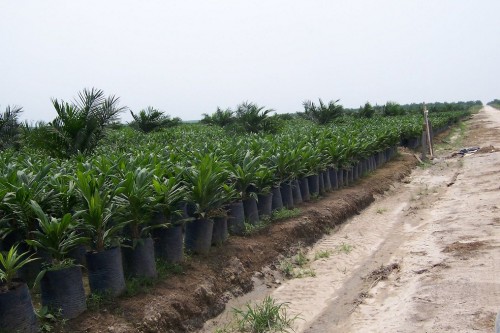
Letter to Ministers to abandon EU biofuel targets
Februrary 2007
Dear Minister,
OVER 160 ENVIRONMENTAL, DEVELOPMENT AND SOCIAL ORGANISATIONS CALL UPON THE EU TO ABANDON BIOFUEL TARGETS.
In the build up to the EU Council meeting of Energy Ministers on February 14th, we are writing to you to highlight the concern of many organisations worldwide about proposed EU targets for biofuels. We are calling on you and your government to reject the proposal for EU-wide targets for biofuel use. At the time of writing over 160 organisations from Europe and the global South have signed an Open Letter to the EU calling for biofuel targets to be abandoned, and warning that the proposals could have a devastating impact on local communities, rainforests, on the global climate, food security, and biodiversity. We urge you to listen to the calls made by those environmental, development and social organisations, and also to separate calls by Latin American NGOs (www.biofuelwatch.org.uk) and by the Indonesian NGO Sawit Watch (www.biofuelwatch.org.uk), which warned that the EU must not solve its problems with transport emissions by making the environmental, social and human rights situation in their countries worse. You can find the full text of the Open Letter calling for biofuel targets to be abandoned in English and Spanish at www.biofuelwatch.org.uk. The letter, launched 31st January, is still attracting signatures from around the world. All new signatures are regularly added and are available on the webpage. The key points of the Open Letter are:
- The proposed targets will promote crops that are often linked to large-scale deforestation, loss of biodiversity, cases of human rights abuses and land use conflicts;
- Not only is deforestation itself a major cause of CO2 emissions, but biodiesel from South East Asian peatlands has been found to cause between two and eight times as much CO2 emissions from damage to peat as the CO2 emissions from the fossil fuel diesel it replaces. Most palm oil currently originates from South-east Asia;
- The Indonesian government is planning the conversion of some 20 million hectares to oil palm plantations, largely to serve the European biofuel market. This is likely to destroy most of the remaining peatlands and rainforests and lead to the emission of as much as 50 billion tonnes of carbon. This is the equivalent of over 6 years of global fossil fuel emissions and could well make 2o C warming unavoidable and could take the planet to a climate tipping point.
- The EU suggests that biofuel production offers trading and employment opportunities to producer countries. However, citizens of the producer countries, including Brazil, Argentina, Colombia, Indonesia, Malaysia, and Cameroon, already suffer the consequences of the current expansion of the monoculture crops that are increasingly used for biofuel production, like palm oil, soya and sugar cane. The impacts faced by local communities include increased destruction of biodiversity and rural livelihoods and further erosion of food security, with serious impacts on water, soil, and regional climate patterns. There are also human rights concerns including
- very poor working conditions and low wages, violent land conflicts, death and health crises due to the use of agrochemicals in plantations and deforestation.
These concerns raised by Southern NGOs are vital and have to be taken into account, just as the strong evidence that EU biofuel policy is not reducing but accelerating deforestation and global warming. We urge you to abandon the proposals for biofuel targets before you and instead agree policies which will reduce Europe’s energy demand and promote truly renewable energy forms. We need to truly reduce greenhouse gas emissions – not export them to the South. Yours sincerely, Nina Holland, Corporate Europe Observatory Almuth Ernsting, Biofuelwatch Andrew Boswell, Biofuelwatch Jutta Kill, FERN Marianne Klute, Watch Indonesia
Contacts:
Nina Holland, Corporate Europe Observatory, nina@corporateeurope.org, ceo@corporateeurope.org, +31-20-6127023 or +31-6-30285042 Almuth Ernsting, Biofuelwatch, almuth@ernsting.wanadoo.co.uk, +44-1224-324797 Andrew Boswell, Biofuelwatch, andrew.boswell@yahoo.co.uk ; +44-1603-613798, +44-7787-127881; Jutta Kill, FERN, jutta@fern.org +44 1608 652 895
NOTES:
- 1. Further notes are attached and detailed information and references to information related to the key points listed above may be found on the website www.biofuelwatch.org.uk
- 2. A study by Wetlands International, Delft Hydraulics and Alterra can be downloaded here: http://www.wetlands.org/publication.aspx?ID=51a80e5f-4479-4200-9be0-66f1aa9f9ca9 . This study shows that one tonne of biodiesel made from palm oil grown on South-East Asian peatlands is linked to the emission of 10-30 tonnes of CO2 from drainage of the peat beds. If the loss of these peatland forests as active carbon sinks and emissions from land clearance by fire for the plantations are also factored in, then, according to a calculation by Biofuelwatch, the expected incremental emissions resulting from consuming South-East Asian palm oil in biodiesel are equivalent to 2x -8x the CO2 emissions of the mineral diesel replaced. For further background information about greenhouse gas emissions linked to palm oil expansion, see here: http://www.biofuelwatch.org.uk/peatfiresbackground.pdf
- 3. These three earlier declarations critical of biofuels and signed by many groups from producer countries in the South:
- “Palm oil for biofuels increases social conflicts and undermines land reform in Indonesia”, 26 January 2007, from Sawit Watch, an Indonesian Non-Government Organisation, group ofindividuals concern with adverse negative social and environmental impacts of oil palm plantation development in Indonesia. http://tech.groups.yahoo.com/group/biofuelwatch/message/245
- “We want food sovereignty, not biofuels”, 4 January 2007, from Latin American Network against Monoculture Tree Plantations, Network for a GM free Latin America, Oilwatch South America, World Rainforest Movement, http://www.wrm.org.uy/subjects/biofuels/EU_declaration.html
- http://www.euractiv.com/en/environment/brussels-biofuels-push-met- sceptism/article-160789
- “Biofuels – a disaster in the making”, addressed at the Parties to the UN Convention on Climate Change, Nairobi, November 2006 ttp://www.wrm.org.uy/actors/CCC/Nairobi/Disaster_Making.html
See also this publication by Brazilian NGO’s
- Agribusiness and biofuels: an explosive mixture – Impacts of monocultureexpansion on bioenergy production in Brazil http://www.natbrasil.org.br/Docs/biocombustiveis/biocomb_ing.pdf








